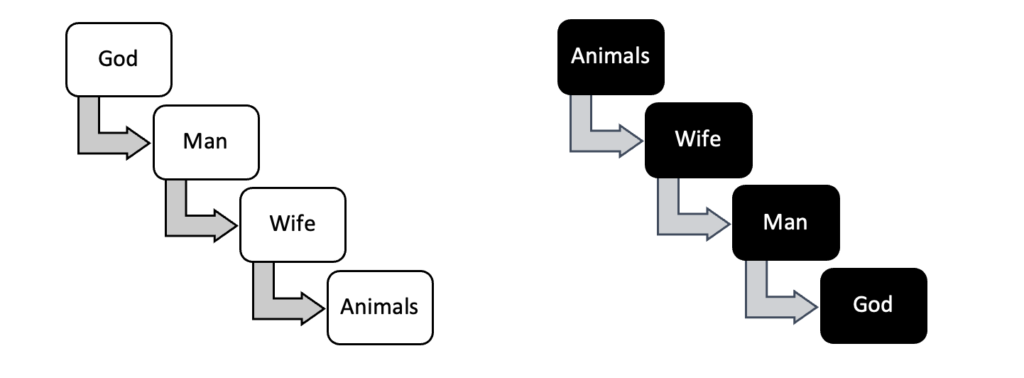The Evangelistic Power of Biblical Marriage
In 1 Peter 2:11–12, Peter argues that believers should live “good lives among the pagans” with the goal that unbelievers would see the believers’ “good deeds and glorify God.” From 2:13–3:7, Peter lays out the various ways this can be accomplished: by citizens submitting to governing authorities (2:13–17), by slaves being submissive to their masters (2:18–25), by wives being submissive to their husbands (3:1–6), and by husbands respecting their wives and living with them in an understanding way (3:7).
When I was teaching through this section a few years ago, one of my students asked a good question. He noted that in Peter’s day, these actions were considered honorable. In particular, the wife being submissive to the husband would have been recognized as righteous. In our day, however, the wife following the husband’s lead is seen as both quaintly outdated and morally outrageous. Considering this cultural gap, how can we apply Peter’s message today?
Some might argue that the need for relevance means that we must adjust our marriage sensibilities to fit the major paradigm for today. This would be acceptable if Peter’s argument rested on the cultural values of that day. But there are good reasons to reject this. Peter’s use of the submission of the Matriarchs to their husbands (3:5) drives us back to Genesis.
God’s original plan for humanity was that there would be two complementary sexes to accomplish the monumental tasks of subduing the earth and populating it. These sexes were equally created in God’s image (1:27); nevertheless, a divine order was put in place. The man was to lead the home, and the wife was to follow his lead. It was the reversal of this order that led to the fall of humanity.

Peter is merely following the creational pattern. In Peter’s day, the Gentiles were also following this same pattern. But what do we do when the creational pattern is widely rejected by society? Wouldn’t it be better to submit to the dictates of the current cultural climate? Indeed, isn’t it necessary to do so to reach people for Christ?
This issue fits within a broader question concerning how much Christians should conform to culture to win people. I think ditches lay on both sides: we can accommodate so much that we fail to be Christian (the liberalism option), or we can stress our distinctiveness so much that we fail to meaningfully interact with our world (the Amish problem). Staying on the narrow path between these options can be difficult and requires wisdom.
In reference to marriage, we must fall on the side of God’s creational norms. This is not only so because we are to be people committed to every Word from God, but also because we are people who believe God knows best. Let me make an analogy. If your neighbor told you to use a particular brand of oil in your car, but you have just read the manufacturer’s instructions (written by the engineers who built the car) which indicate you should use a different oil, which would you use?
God designed men, women, and marriage. He indicated what is best for us, and we must believe Him and live according to His direction. For those who say that biblical marriages will be mocked, I don’t disagree. I do believe our culture will look askance at our obedience to Scripture. Nevertheless, there is a theme that runs through 1 Peter that applies to this situation. Peter suggests that when we do righteous acts and are ridiculed by others for such acts, the unbeliever will ultimately be ashamed (2:12; 3:16).
Some believe this shame will be eschatological (i.e., at the final judgment), but because Peter is depending on the words of Jesus (Matthew 5:16), it is better to see this as temporal. In other words, people will mock, see our good deeds, and then—Lord willing—repent. Truly biblical marriages—where men love their wives as Christ loved the church (Eph 5:25) and where wives joyfully follow the husband’s lead—will radiate with the light of Christ.
Coming back to the initial question my student asked, we must admit that biblical marriages are now counter-cultural. Nevertheless, they are God’s intended design. When things operate according to design, there is beauty in their operation. To capitulate to culture on this issue would not amplify the Christian witness; it would mute it.



